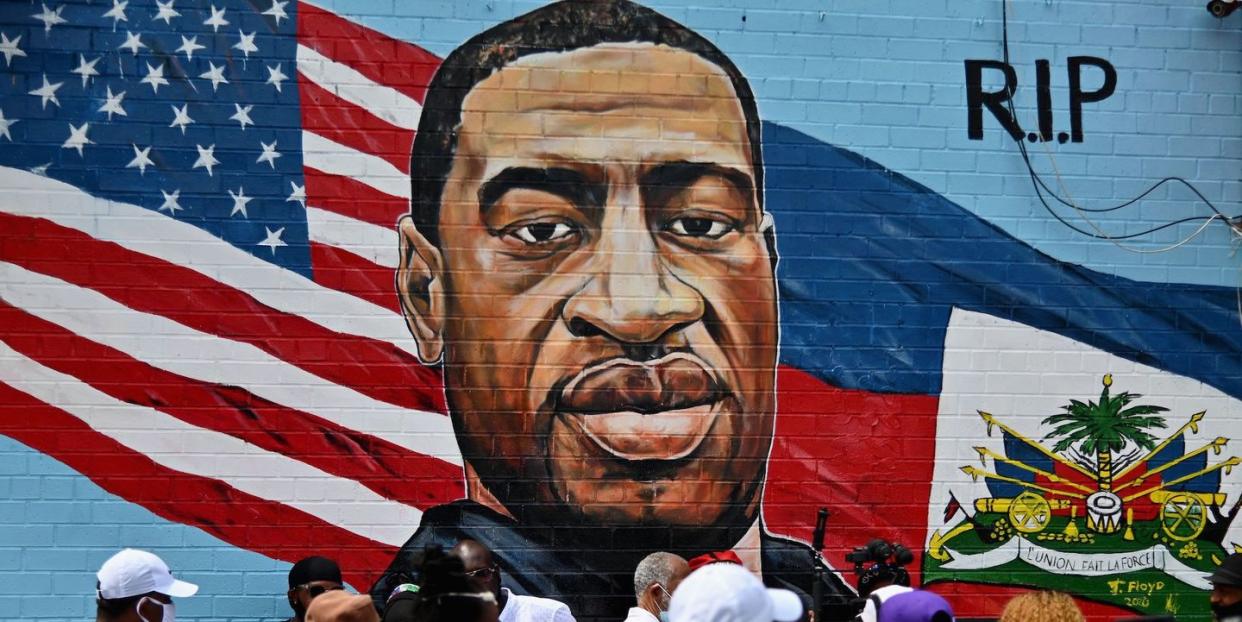The Minneapolis Police Department's Original Statement on George Floyd's Death May Shock You

- Oops!Something went wrong.Please try again later.
In the long year since he was murdered by an officer of the Minneapolis Police Department named Derek Chauvin, George Floyd's name has become a signifier for a global movement. Justice is an elusive thing, and so is lasting change in how policing and our system of criminal justice actually operate. The enduring change in law and practice is yet to come, despite the affirmation of Chauvin's guilt in a court of law on Tuesday. There has been a change in attitudes, but it's crucial to contend with the fact that all this could easily never have happened. Without a bystander's video that relayed the excruciating truth about what an agent of state power did to George Floyd, his death may not have come to mean what it has. Without that video, shot by 17-year-old Darnella Frazier, we might not have the truth today. Even the officers' body cameras did not communicate the same horrifying truth in its totality.
This all is thrown into particularly sharp relief when you look at the initial statement released by the Minneapolis Police Department. That first account has been making the rounds Tuesday following the jury's verdict, first sent to reporters on the morning of May 26, 2020 by a police spokesman named John Elder.
Seriously, read it again knowing what we know: pic.twitter.com/XqPWCpoxeQ
— Jake Tapper (@jaketapper) April 20, 2021
As the bystander video went viral in the aftermath, the Minneapolis police were forced to explain this account. Elder, the spokesman, told the Minneapolis Star-Tribune it was the result of a "fluid" situation and the officers involved in the incident weren't available to be interviewed by a public information officer. "We try very hard to get information out as quickly as possible that is wholly honest and correct," Elder said. "There is no way I’m going to lie about a situation that is on body camera and is going to prove this department to be disingenuous." But in August, the Los Angeles Times reported that Elder had not reviewed that body cam footage or been to the scene. He got his information from a dispatch log. Elder repeated his insistence that there was no intent to deceive in an interview with the Times, claiming that it would have taken hours for him to get the bodycam video, but the Minneapolis City Council had already voted the month prior to eliminate the police press office and put the city in charge of public communications about the police.
It was an admission that, whether or not Elder—and many police spokesmen in the same position in cities across the country—had intended to deceive, he had. And it was an admission that a core operating premise of life for many in America—that when the police tell you what happened, it's what happened—was not just wrong, but dangerous.
One of the privileges of white existence, in constant operation from the time you are small, is the notion that the structures of authority all around you are operating correctly and above-board. The notion that they work for you and people like you is confused for the idea they work. And part of that is believing that whatever the cops said about what happened is what happened. Why would they lie, you ask in your particular hue of innocence, they're there to make everything OK. In Exterminate All the Brutes, a haunting exploration of race and colonial domination, director-narrator Raoul Peck speaks tragically about the tender age at which he learned that all he'd been told about the just arrangement of the world was false, and how that unravelled not just his view of that world, but his place in it. Some of us are given much more time to be innocent. Some of us guard it jealously our whole lives.
Maybe that's why some are still resistant to accepting the reality around policing and criminal justice in America. It necessitates accepting something about ourselves, and where we fit in all this. Stating plainly that we can't just accept a police department's version of events should not be contentious, because it's not a declaration that police always lie. We just can't expect them to tell the whole truth about their own behavior. It's a lesson we journalists should learn before anybody.
You Might Also Like

